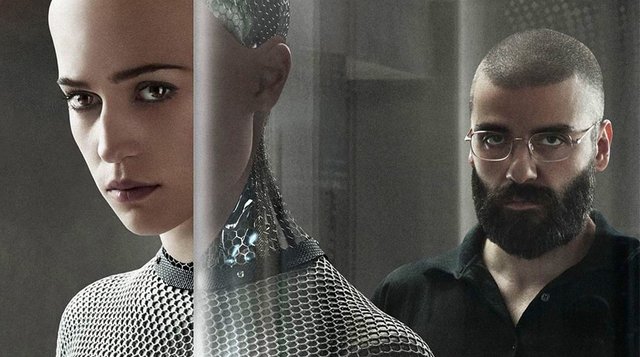The next step in artificial intelligence will be artificial consciousness

The machines will follow the same path as the evolution of human beings, until they become conscious and be able to develop themselves without man being able to understand or control them.
This is how Ray Kurzweil describes the next stage in the development of artificial intelligence. The character is controversial, he is known for his transhumanist positions in favour of immortality and convergence between man and machine, but he is also director of engineering at Google. Another specialist in artificial intelligence and cognitive sciences at MIT, Marvin Minsky also stated that "nothing could prevent machines from reaching and surpassing human intelligence unless prevented. Added to recent positions taken by Bill Gates, Stephen Hawking and Elon Musk to warn of advances in artificial intelligence, this is starting to become serious.
Artificial intelligence explodes
Conscious machines, that seems unbelievable and yet we are at a turning point. Artificial intelligence is taking off. Not a single day without a new advance in artificial intelligence being announced. In 2012, Google was teaching its artificial intelligence to recognize a cat by watching videos on Youtube, in 2016 Alpha Go beat the best Go player in the world when it was thought that this would not happen for at least several decades, Watson diagnosed rare leukemia on a patient in Japan in a few minutes when doctors were unable to diagnose, in 2017 Libratus pulverisated the The race for artificial intelligence between the giants of the web is launched.
The problem of artificial intelligence is the problem of intelligence itself.
This race for artificial intelligence is not new, it dates back to the beginnings of computing. And from the beginning, several approaches were proposed to create artificial intelligence. First, to imitate the functioning of human intelligence. Problem: we didn't know and still don't know how it works (even if the discoveries are dazzling and raise new questions). Then replicate the human brain itself with transistors or algorithms. There are attempts, but there are still too many unknowns about its organization and functioning, and even if we had a perfect knowledge of it, it would be too complex and probably not very effective to use this approach. And finally allow the machine to perform the same functions as human intelligence (recognize its environment, manipulate language, memorize, contextualize, reason, and many others...) without necessarily knowing how human intelligence manages it. The analogy often used in artificial intelligence courses is that of artificial flight. Artificial intelligence would be to human intelligence what the flight of an airplane (artificial flight) would be to the flight of a bird (natural flight): the two function differently and have two different substrates (biological vs. metallic) but achieve the same result, they fly. Even if the latter approach produces many results today, in reality all these approaches combined with research in cognitive science, philosophy, psychology, sociology and linguistics feed and influence each other.
Deep Learning and Reinforcement Learning: two approaches with unlimited potential
From an algorithmic point of view, Deep Learning is used to train artificial intelligences to identify characteristics, high-level concepts in the data: it is thanks to Deep Learning that the giants of the web identify what is on the photos, it is enough to show many examples to the algorithm and to supervise it by showing him what is on the photos so that he is then able to do it alone on new examples. Another very promising type of algorithm right now is Reinforcement Learning. In this approach, the algorithm is given an environment with constraints, action capabilities and an objective to reach, and it will be allowed to train by trial and error and exploration to reach its objective on its own. For example, Reinforcement Learning teaches an algorithm to play Super Mario on its own, and it quickly discovers how to play in a totally optimal way. And when you combine Deep Learning and Reinforcement Learning, you get algorithms that can both recognize their environment and achieve goals. It is thanks to the combination of the two that Alpha Go beat the best Go player in the world last year. But in the future the potential is much more promising because we have now understood that artificial intelligences can be trained to perform any type of task by giving them an environment and a goal to be achieved by training. It is as if we consider each objective to be a video game with a field of vision. Last year the OpenAI organization launched the Universe platform last year so that everyone can learn artificial intelligences to perform new tasks in all areas (both playing video games and filling out a form on the internet). Tomorrow no one will program machines with code any more, we can all train artificial intelligences to perform tasks.
Einstein well said that artificial intelligence is a threat to the world.
I agree with him because if we gave a machine its intelligence then it will do what ever it wants. We dont know about its consequences untill its partially controlled by us.
BTW Thanks for the info buddy